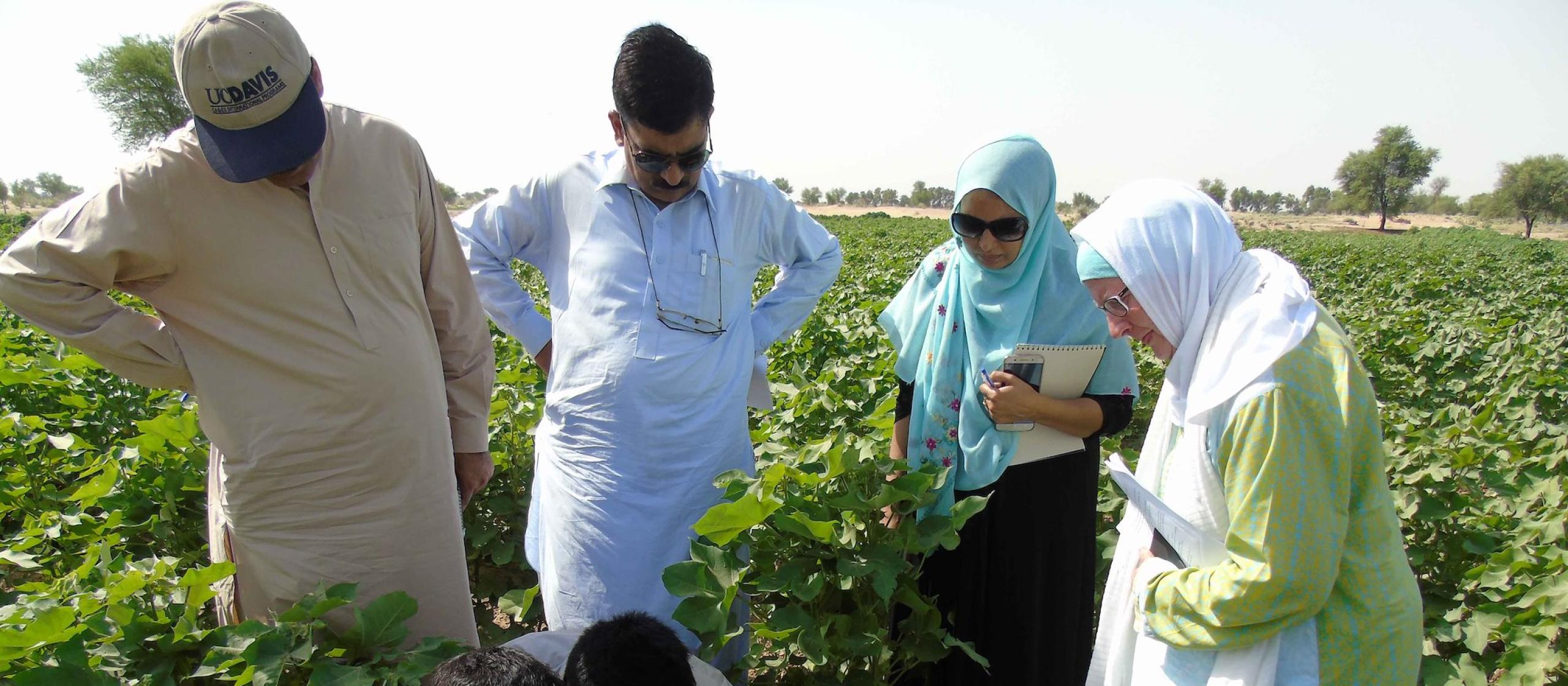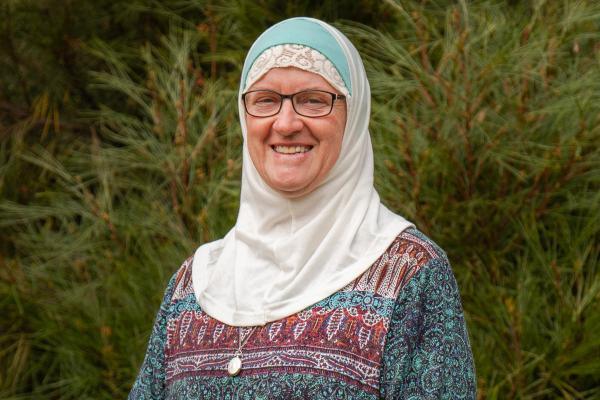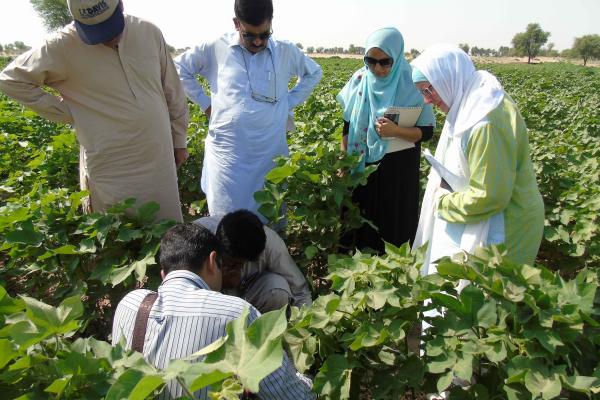- HomeHome
-
About ACIAR
- Our work
- Our people
-
Corporate information
- ACIAR Audit Committee
- Commission for International Agricultural Research
- Policy Advisory Council
- Agency reviews
- Executive remuneration disclosure
- Freedom of information (FOI)
- Gifts and benefits register
- Information publication scheme
- List of new agency files
- Contracts
- Legal services expenditure
- Privacy impact assessment register
- Commonwealth Child Safe Framework
- Benefits to Australia
- Careers
- 40 years of ACIAR
-
What we do
- Programs
- Cross-cutting areas
- Resources
- Where we work
-
Funding
- Research projects
- Fellowships
-
Scholarships
- John Allwright FellowshipScholarships to study in Australia for ACIAR partner country scientists to have Australian postgraduate qualifications
- ACIAR Pacific Agriculture Scholarships and Support and Climate Resilience Program
- Alumni Research Support Facility
- Publications
- News and Outreach
Date released
20 April 2020
In 1982 a local guide in India gave Dr Sandra Heaney-Mustafa words of wisdom that shaped her life forever. The future Senior Lecturer of community education at the University of Canberra was at the time a practising nurse and had just begun a three-year journey from Scotland to Australia on the back of a Bedford truck.
Along the way Dr Heaney-Mustafa stopped to help struggling earthquake survivors in Turkey, then Afghan refugees in Pakistan. Amid the chaos and destruction, what really struck Dr Heaney-Mustafa was the resilience of some of the poorest of the poor in the face of unimaginable hardship.
When she shared this thought with a local guide in India, he said to her: ‘We all have the strength within us but we often don’t know how to use it.’ Reflecting on that advice today, more than 35 years later, Dr Heaney-Mustafa says, ‘What really focuses the work that I do is trying to find that strength within people, to help them realise that strength and to use it.’
Nearing 70 years of age, Dr Heaney-Mustafa has extensive experience in primary healthcare and community development work. She has spent the past 12 years working on ACIAR-funded research for development projects in Pakistan focusing on improving the livelihoods of farmers by enhancing water and irrigation practices.
But her path to research work and academia was not a smooth one. Disenchanted with work in medical centres and encouraged by a nursing colleague, at the age of 35 she went back to school full-time to pursue an undergraduate degree in education and biology.
Over the next three years she juggled school with part-time work as a nurse to pay the bills and still managed to graduate with first-class honours. Then she got a scholarship to do a doctorate at the University of Newcastle that would take her to a refugee camp in Sudan and unexpectedly steer her towards a path of faith.
One evening, in the midst of a measles outbreak in the refugee camp, Dr Heaney-Mustafa tried to save a little boy. Tragically, there weren’t enough antibiotics to go around and the child died in her arms. ‘I thought no God would put a child to suffer like this on Earth if there wasn’t a Heaven for them in the end,’ recalls Dr Heaney-Mustafa. That was a strong statement coming from a woman who had been questioning religion since she was 15 years old.
Then again, Sudan changed her. Dr Heaney-Mustafa saw how refugees who survived on the equivalent of a bowl of porridge a day still diligently prayed to the Islamic god, Allah, five times a day in gratitude for life’s blessings. As a nurse and a woman of science, she had found that the concept of the afterlife always eluded her. But that night, with the child lying in her arms, everything fell into place. ‘That was the night I really decided to focus on Islam,’ she says.
When Dr Heaney-Mustafa returned to Australia in 1991 to finish her doctorate she converted to Islam. As part of her new faith she decided to learn Arabic and posted an ad on the student notice board looking for a language teacher.
A Kurdish refugee and engineering student named Dilair replied. Dr Heaney-Mustafa laughingly says she didn’t learn much Arabic from Dilair but she did find in him a soulmate. The couple eventually married in 1999. ‘He’s my rock,’ says Dr Heaney-Mustafa. ‘He doesn’t do what I do but he understands how important the work I do is, not just for the people I work with but for me as a person.’
It wasn’t until 2001 that Dr Heaney-Mustafa arrived at the University of Canberra for a part-time teaching position that a year later turned into a fulltime job. For more than 10 years all her research has focused on Pakistan.
‘What really focuses the work that I do is trying to find that strength within people, to help them realise that strength and to use it.’ - Sandra Heaney-Mustafa
While she doesn’t have quantitative proof, she feels being Muslim in an overwhelmingly Muslim country has led to a greater level of trust and cooperation from the local communities she works with.
‘They often say to me, “Are you dressed like that [in a hijab] because you’ve come to Pakistan or are you Muslim?”,’ she says.
When Dr Heaney-Mustafa assures them she is indeed Muslim they tell her in Arabic ‘You’re our sister’. Dr Heaney-Mustafa is currently wrapping up a four-and-a-half-year project on enhancing farmer water management skills in Pakistan that is funded by ACIAR and intends to scale down to a part-time teaching position in 2021.
Looking back on her colourful career she says she hopes her legacy will be one of self-empowerment: ‘for people to realise they have the capacity to bring change to their own lives the way they want to change them’.





